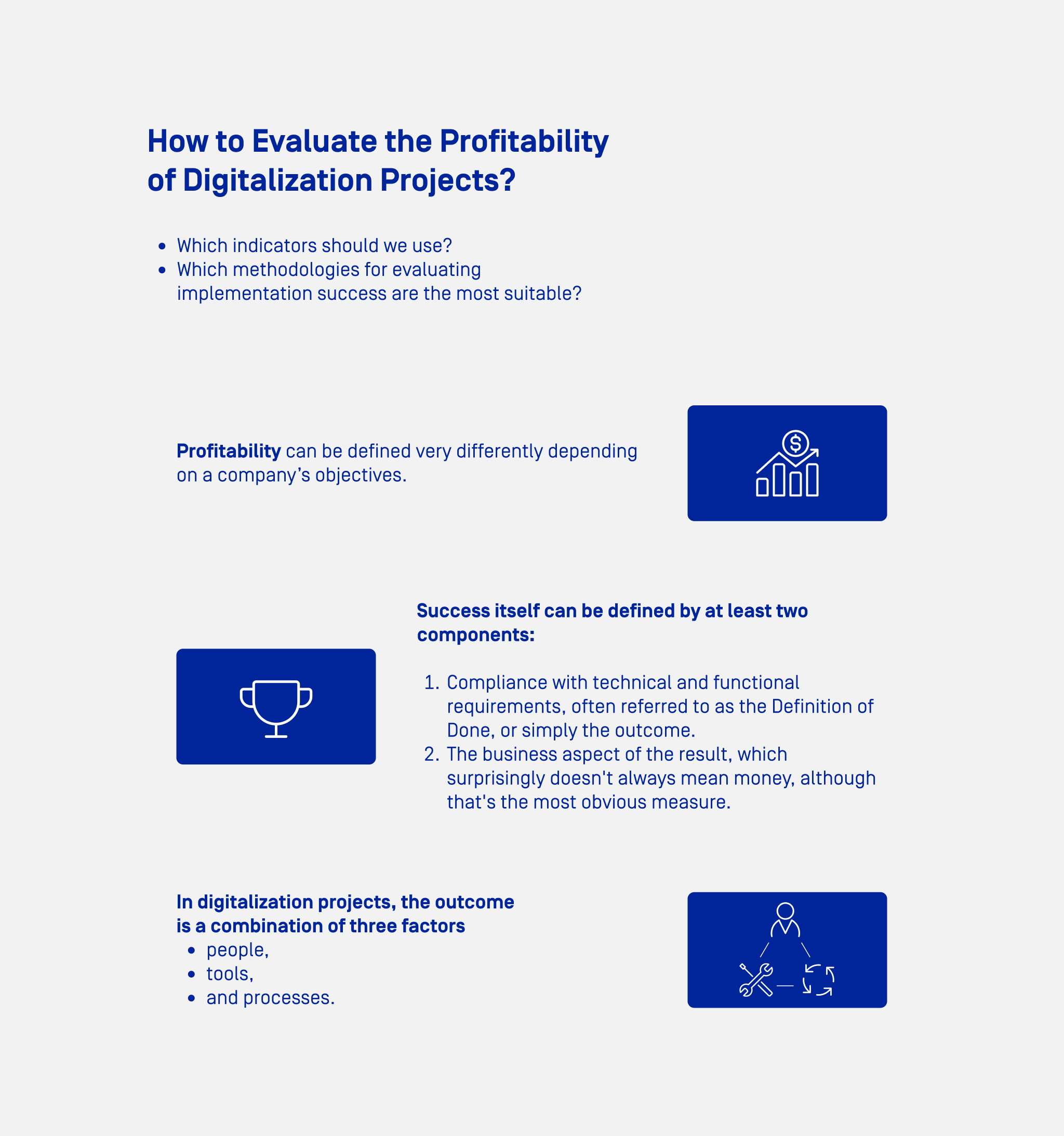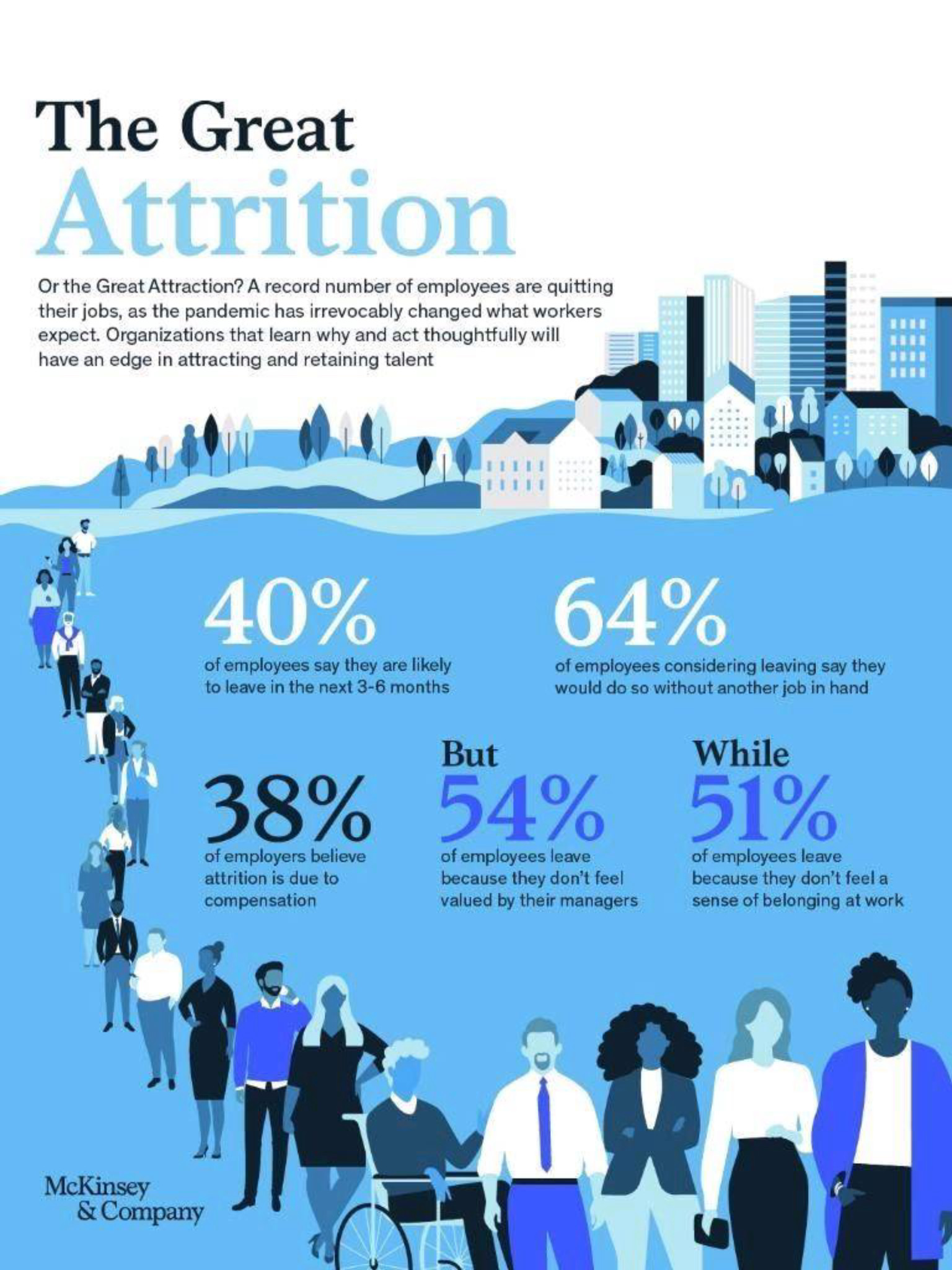
Evaluating the Profitability of Digitalization Projects

Michał Zieliński
How can we assess the profitability of digitalization projects? Which methodologies for evaluating implementation success are the most suitable? These are questions many decision-makers ask themselves.
Let’s start by acknowledging that profitability is an indicator that can be defined very differently, depending on a company’s objectives.
Success itself can be defined by at least two components:
- Compliance with technical and functional requirements, often referred to as the Definition of Done, or simply the outcome.
- The business aspect of the result, which surprisingly doesn’t always mean money, although that’s the most obvious measure.
In digitalization projects, the outcome is always a combination of three factors: people, tools, and processes.
For instance, let’s consider a production efficiency measurement system based on OEE. The system alone cannot ensure an increase in this indicator, not even by 0.5%. However, if properly implemented and thought through, it can provide valuable insights into efficiency, potential improvements, structural issues, and causes of losses. But it won’t make any changes by itself. Only the decisions made with this data can generate tangible results.
Implementing the system should be one part of a planned change, which could also include employee training in methodologies like Lean, TPM, SMED, and organizational changes. Only by considering all these actions can we evaluate the project’s effectiveness. However, it must be noted that the results are rarely immediate. Like any change, this one also involves all phases from denial, resistance, exploration, to acceptance and adaptation.
The time required for this process depends on the organization’s ability to adopt new technology, which in turn can be accelerated by managerial involvement (especially from line managers), extensive training, and, most importantly, demonstrating how real problems are being solved. Undoubtedly, problem solving is far more convincing than potential opportunities and benefits.
Let’s not be afraid to admit that during the change process, efficiency may sometimes decrease, or employee resistance may slow things down or even lead to sabotage. Change triggers extreme emotions, including fear, so addressing employees’ concerns during Gemba walks is as important as fostering a sense of purpose and meaning.
Both domestic and international employee satisfaction surveys show that having a sense of purpose and being able to solve problems are among employees’ most critical needs. We’re currently in a period defined by McKinsey as the Great Attrition, with large numbers of employees leaving their companies. Therefore, building commitment and involvement might be the most significant, though unmeasurable, result of our initiatives.




Michał Zieliński is a graduate in Automatic Control and Robotics, as well as a postgraduate Lean Six Sigma Black Belt from Gdansk University of Technology. He is a partner at ImFactory, where he works as a Project Manager and Head of the Digital Consulting Department. At ImFactory, he is involved in shaping a vision for the advancement of IT systems in manufacturing environments, evaluating the digital maturity of enterprises, and planning their Digital Transformation journey. His projects encompass a wide range of activities, from overseeing surveillance and monitoring installations to implementing comprehensive integrated manufacturing management systems.
See also
Want to learn more? Visit our Knowledge Base, where you'll find articles and webinars by experts to expand your knowledge.
Check if Digital Transformation is the Answer to Your Company's Needs
The Free Consultation Process:






























